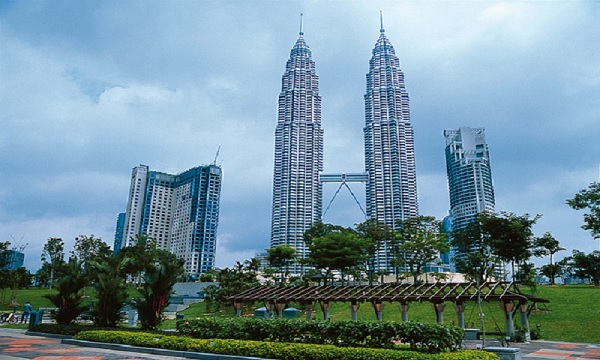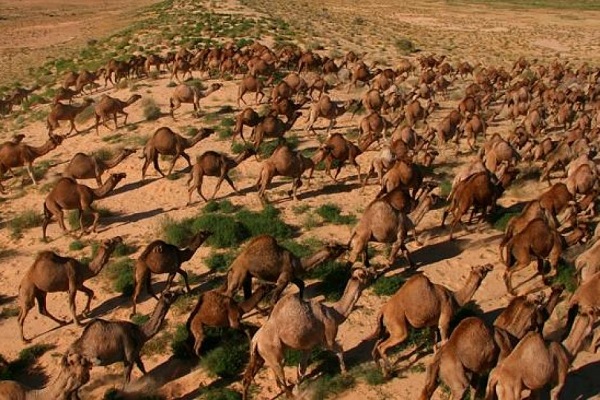
by Editor | May 25, 2021 | Muslim World
 Kuala Lumpur (IINA) – Expo 2017 Commissioner Rapil Zhoshybayev said Kazakhstan is committed to promoting and discovering sustainable global energy solutions although it may seem strange for the country to do so considering that it has large fossil fuel reserves, BERNAMA reported.
Kuala Lumpur (IINA) – Expo 2017 Commissioner Rapil Zhoshybayev said Kazakhstan is committed to promoting and discovering sustainable global energy solutions although it may seem strange for the country to do so considering that it has large fossil fuel reserves, BERNAMA reported.
Kazakhstan will host Expo 2017, under the theme “Future Energy” from June to September 2017 in the capital Astana.
Although Kazakhstan has substantial oil and gas reserves, it has set itself a target of meeting 50 percent of its energy needs from alternative and renewable sources by 2050, Zhoshybayev said in a statement.
He added that energy security was an increasing concern for many countries, with governments worried about how they could meet the needs of their economies and citizens in future decades.
“Around the world, too, the damaging impact of climate change is becoming clearer every year, thus, increasing fears about the legacy we are leaving for future generations,” he said.
Expo 2017 will be Kazakhstan’s first major international-level event; it is also the first time the expo is being held in Central Asia.
Zhoshybayev said Expo 2017 has been receiving strong international attention and that to date, 70 countries, including Malaysia, have confirmed their participation.
Zhoshybayev, who will embark on a visit to Malaysia next week, will meet with Loo Took Gee, secretary general at the Ministry of Energy, Green Technology and Water, in Kuala Lumpur on April 4 to discuss details of Malaysia’s participation in Expo 2017.

by Editor | May 25, 2021 | Muslim World
 Kuala Lumpur (IINA) – Kazakhstan is determined to continue and strengthen its bilateral trade with Malaysia despite global economic challenges, The Malaysian Insider (MI) reported.
Kuala Lumpur (IINA) – Kazakhstan is determined to continue and strengthen its bilateral trade with Malaysia despite global economic challenges, The Malaysian Insider (MI) reported.
According to a spokesperson for Kazakh embassy in Malaysia, several areas of cooperation in both the diplomatic and economic fields have been explored between Kazakhstan and Malaysia since the start of their official relationship in 1992.
These include the agreements signed during the visit by Prime Minister Najib Razak to Kazakhstan in May 2014 for the construction of a methanol plant and a liquefied natural gas plant as well as farm development involving cattle breeding in the country.
“From January until October 2015, mutual trade between Kazakhstan and Malaysia stood at $76.6 million (RM320 million) with total exports to Kazakhstan worth $76.2 million and imports valued at $396,300”, the spokesperson said. She noted that the bilateral trade was largely in Malaysia’s favor, having registered exports of $122.7 million to Kazakhstan in 2013 and $105.2 million in 2014.
She stated that the main items imported by her country from Malaysia included electrical and electronic products, appliances and parts, palm oil, lubricants, rubber products, clothing and furniture. In turn, Kazakhstan exported ferrous metals, surveying and measuring equipment, tools and pipe-fittings to Malaysia.
With the similarity of having a majority of Muslims, Kazakhstan, which is the ninth largest country in the world, has conveyed its interest to emulate Malaysia’s socio-economic development.

by Editor | May 25, 2021 | World
 Sydney:(IANS) Australian camel farmers are preparing to export boxed camel meat to China following an industry conference in Kazakhstan in June.
Sydney:(IANS) Australian camel farmers are preparing to export boxed camel meat to China following an industry conference in Kazakhstan in June.
More than one million wild camels are estimated to be roaming Australia’s deserts, covering 3.3 million sq kms, Xinhua quoted Australia’s national broadcaster as saying.
Alex Knight, land and culture manager of the Ngaanyatjarra Council in Alice Springs, said a camel milk company from China wanted to hear about developments in Australia at the Kazakhstan conference.
“They are trying to develop an import protocol to import camel meat from Australia,” Knight said.
Somali butcher Abukar Hersi, currently residing in Melbourne, said camel meat is “one of the best things you can have” which is very rich and high in protein.
“I think when Australians realise, we will see camel meat in every butcher and supermarket.”
Knight said they attended the conference in Kazakhstan to understand the commercial aspects of management, husbandry and disease eradication for camel farming.
“There has not been much research in Australia on how to use camels commercially whereas the rest of the world has been developing their camel industry,” Knight said.

 Kuala Lumpur (IINA) – Expo 2017 Commissioner Rapil Zhoshybayev said Kazakhstan is committed to promoting and discovering sustainable global energy solutions although it may seem strange for the country to do so considering that it has large fossil fuel reserves, BERNAMA reported.
Kuala Lumpur (IINA) – Expo 2017 Commissioner Rapil Zhoshybayev said Kazakhstan is committed to promoting and discovering sustainable global energy solutions although it may seem strange for the country to do so considering that it has large fossil fuel reserves, BERNAMA reported.

